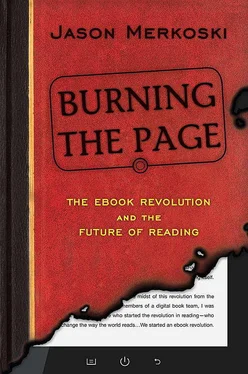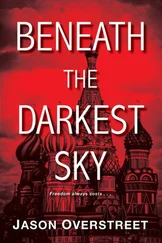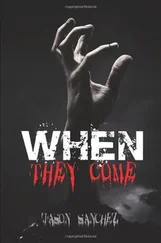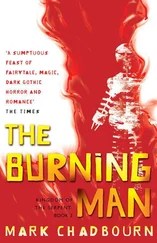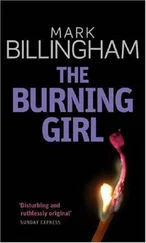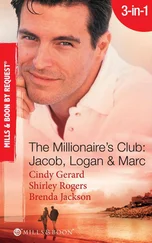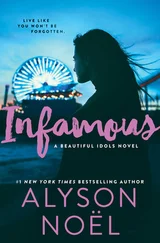So we either need better applications that keep us rooted to what we’re reading, or we need to police ourselves—perhaps with lockouts that we apply to ourselves that prohibit us from wandering out of the book to check our email or surf the web or only allow us to do this once an hour while reading. Perhaps future software updates for the iPad will allow teachers to lock devices down into ebook-only mode or give students intermittent access to the non-ebook parts of the device. Lockdown controls like this would probably be useful for a lot of adults I know too.
Lockdown controls aren’t the only thing we could benefit from. I think we can all benefit from a brush-up course on digital hygiene, on learning how to focus. And I think we’re going to learn just how important social networks are. A 2012 study by the Association of Magazine Media showed that Gen Y was reading more magazines than ever, although this reading was tied to an increase in the use of social networking sites. So let’s face it, ebooks are going social, and it’s going to be a strange symbiosis, like that between a hummingbird and an orchid: one without the other would likely not last. Digital books will form an unlikely alliance with social networks, and they’ll both survive the changing tides of fashion and the flighty whims of technology.
Still, one of the reasons I adore dedicated e-readers like the Kindle and the Nook, as opposed to tablets like the iPad, is that they keep your attention on an ebook as you read. Like with a print book, you’ve got a dedicated reading experience with no distractions—no buzzing lights or videos or ads for meeting singles online or tweets to respond to. I worry when reading experiences start to include too much distraction and context shifting. As someone sensitive to media ecology, that’s where I draw the line. I think all of us, our children included, should be encouraged toward dedicated experiences, not distracting ones.
Our devices are shortening our children’s attention spans. Our children need to concentrate when they learn to read to become good readers—and from that, good thinkers. But our hypermediated environment is one of constant distraction, so our kids are often learning to read—and through that, to think—in a rather shallow and careless way. It never used to be possible, let alone culturally acceptable, to read and watch TV at the same time. You would have to pick one or the other to focus on.
But now with devices like the iPad, you can multitask between them, switching from reading to watching a video when the book becomes too hard. And let’s face it: our brains are lazy. Ask any cognitive neuroscientist, and they’ll tell you that our brains are machines for avoiding work, if there’s any work to be done. And reading is hard work. It’s rewarding, true, but you have to actively work at it. When you skim a book and passively read it, you don’t recall as much of what you’ve read as when you pause, linger over sentences, find the humor or irony in them, and actively work at the reading experience.
That said, not everyone can focus. Attention-deficit hyperactivity disorder (ADHD) causes inattention, distractibility, and disorganization. Incidences of this disorder are on the rise. In fact, it’s estimated that up to 10 percent of American children have this. At the time of this book’s writing, doctors still don’t know what causes ADHD. But most doctors would agree that you don’t try to fight inattention with more inattention. If anything, children with ADHD are encouraged to create routines and avoid distractions. Snacking on digital media on iPads and similar multifunction tablets only feeds the inattention.
Not just children have ADHD. Many adults do too, and the numbers are still climbing. Maybe it’s part and parcel of carrying around so many smartphones and tablets and laptops, of being too plugged in to the internet and chat windows and glittering digital eye-candy. But this disorder is debilitating. In the end state, if this continues unchecked, we run the risk of becoming a nation of ADHDers, unable to focus, engage, or reason clearly.
What’s the way out of this?
Simplicity, mindfulness, and attention. It might be as simple as doing nothing. As long as it’s the right kind of nothing.
In the book Hamlet’s BlackBerry , author William Powers describes a technique that works for him. He calls it a “Walden Zone.” It’s a room without electronics. A room in your house where you can think, like Thoreau on Walden Pond. A place where you can meditate and contemplate—and ideally, you’re not contemplating what your next game of Angry Birds will be like or how you’ll beat your former score.
It’s a technique I use in my own life. There’s always a room in my house with no gadgetry, and I try every year to take a vacation for a few weeks somewhere without electricity. I try to reconnect with myself. Even if you don’t suffer from ADHD, this might work for you too.
If you have other techniques to stay focused that work, why not share them with others who are passionate about ebooks but wary of the perils of having too many distractions? And if you’re a parent or a teacher, what do you think about how reading is taught these days? Do you think kids can become good readers when music and TV and the web and texting are taking up their attention and taking them out of their books?
http://jasonmerkoski.com/eb/22.html
The Last Digital Frontier
One of the amazing things about the ebook revolution is how much attention it has gotten in our culture. Ten years ago, hardly anyone talked about the book-publishing business. Even editors and publishers were bored with it. Movies and TV were much more exciting. But today, you can find stories about the ebook revolution online and in newspapers almost every day. Why is this so fascinating to people?
I believe it’s because books had a solidity to them. They represented the accumulated weight of our culture. Books were the last bastion of the analog. Prior to the Kindle, all other forms of media had been digitized. Music, movies, TV shows, video games, even newspapers were available on the web for instant download and instant gratification. But books remained in print.
But now, the last bastion of the analog, the last stalwart bulwark, has finally been cracked, and books are available for digital download. With the advent of ebooks, books will never quite be the same. Now, our eyes will grow accustomed to LCD screens and eInk displays instead of paper softly lit by glowing fireplace embers at night. Our kids will never know the subtle way that books get scarier by night as you curl up under the covers with a flashlight to read.
These next few years will be momentous for the book industry, as it shifts from a purely physical mode to a digital mode. But this shift into the digital is happening everywhere, not just with books. Everything we take for granted in the physical world is up for grabs in the digital world, including core concepts like ownership of ourselves and our creations, digital or otherwise.
As we transition our lives wholesale into Facebook and Twitter and communicate more with email than face to face, what does it really mean to own something or even to “be” in the purely existential sense of Hamlet in his soliloquy? What does it mean as our books shift to the cloud from our trusty wooden bookshelves and from neat or perhaps messy stacks next to our beds? What does it mean as our media—our books and songs and movies—are no longer real-world things with any substance that we can feel with our fingers? What does it mean as we move our memories online into social networking services or as we post our photos onto websites like Flickr instead of printing them out at the pharmacy and putting them into photo albums?
Читать дальше
